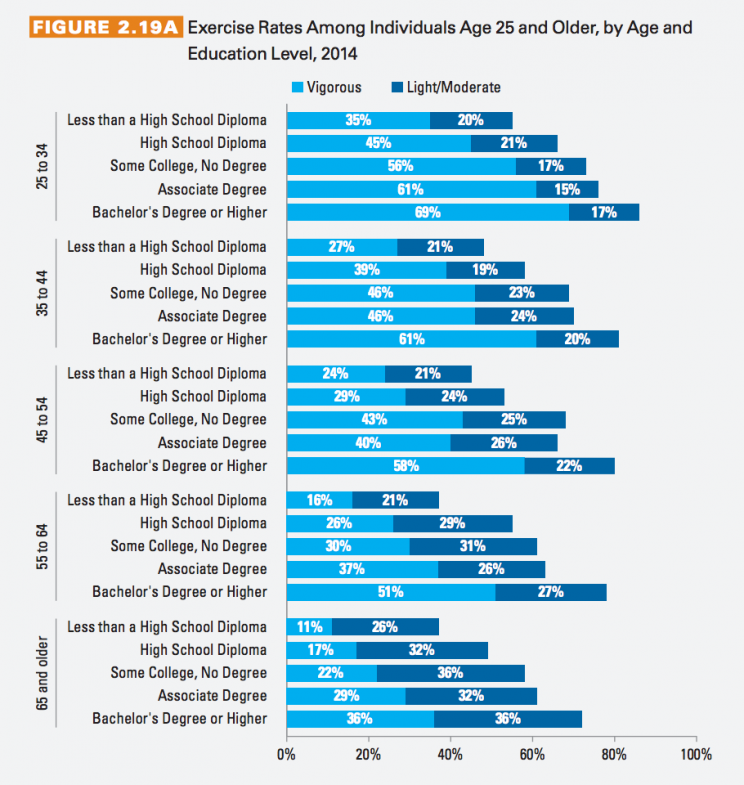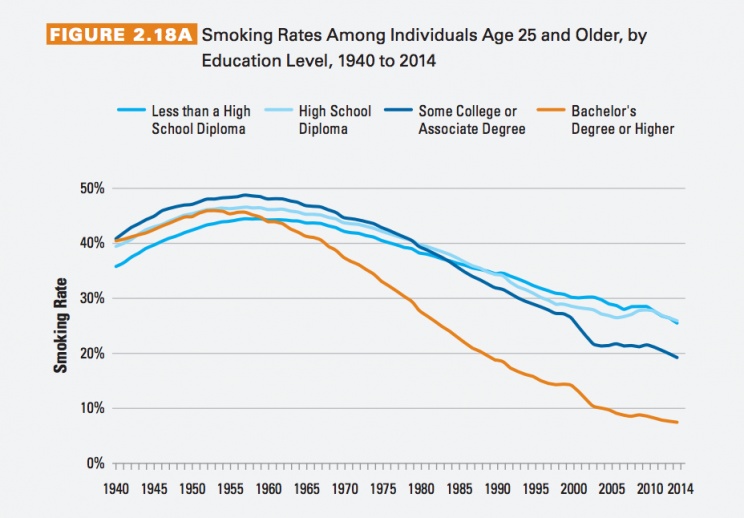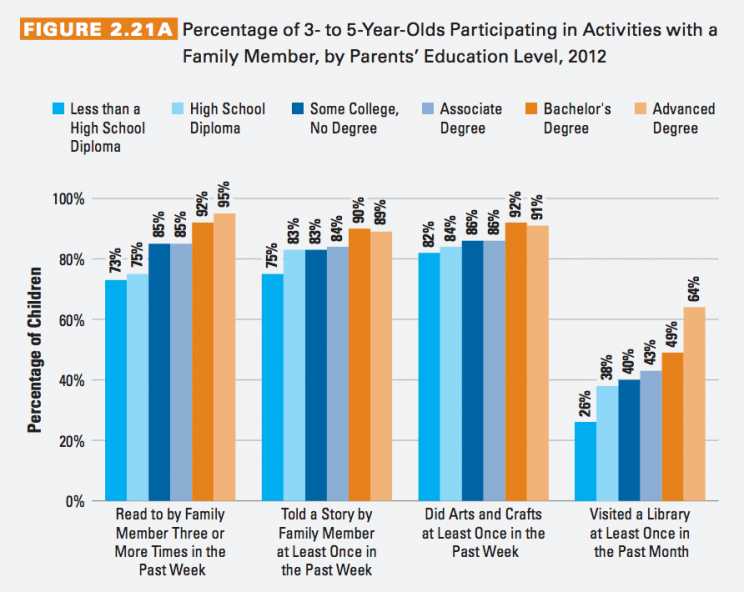CHARTS: 5 secondary benefits of graduating college
The career benefits of going to college are well known: Those with a bachelor’s degree earn more money than their peers with lower levels of education and are more likely to be employed.
According to a recent report from The College Board, attending college also has major implications on other aspects of graduates’ lives — chief among them is improved health outcomes.
More exercise
Data from the National Center for Health Statistics found that college graduates exercise at a significantly higher rate than those in the same age range without a degree. That difference is consistent across all age ranges — and it actually becomes more pronounced as respondents get older.
Among those with a bachelor’s degree aged 65 and older, 36 percent reported exercising vigorously at least once a week. That’s about the same percentage of those 25-34 without a high school diploma.

Less likely to be overweight
Furthermore, adults with a bachelor’s degree are far less likely to be overweight. Both male and female college graduates had lower rates of obesity than those without a college diploma.

That trend is even more pronounced in the children of college graduates, who are approximately half as likely to be overweight as the children of those with lower levels of education.
The report notes that income levels and the higher price of healthy food likely play at least some part in this correlation, but also added “differences in exercise patterns and in dietary knowledge and choices are also relevant.”

Less likely to smoke
Approximately 26 percent of high school graduates smoke, compared to just eight percent of those with a bachelor’s degree or higher.
Those rates were once flipped — college graduates smoked at a higher rate before the dangers of smoking became clear in the 1950s and ’60s. However, once that information became more widespread, college-educated adults dropped the habit much more rapidly.

More family time
According to the National Center for Education Statistics parents with higher levels of educational attainment are more likely to engage in educational activities with their children.
Additionally, a 2012 University of Chicago study found that mothers with higher levels of education “alter the composition of that time to suit children’s developmental needs more than less-educated mothers.”

More community service
Finally, the likelihood of participating in unpaid volunteer activities increases significantly with level of education. At all levels of education, religious organizations receive the largest percentage of volunteers, followed by education and youth services.

The College Board is a not-for-profit organization that aims to expand access to higher education.
MORE: Why you won’t truly appreciate college until your mid-30s

 Yahoo Finance
Yahoo Finance 